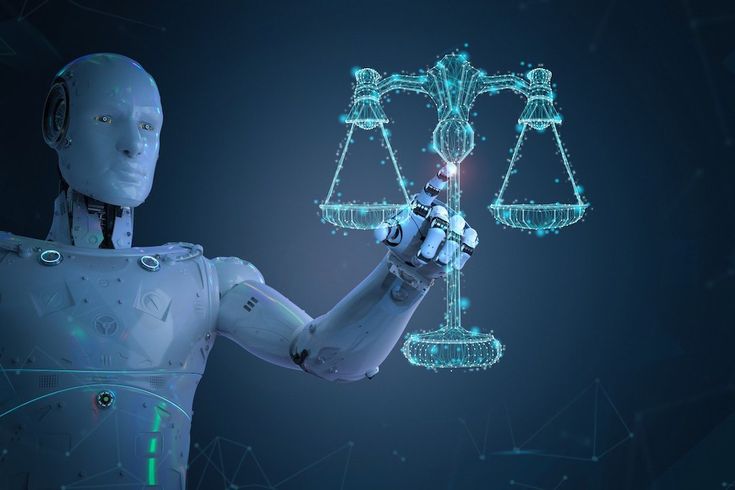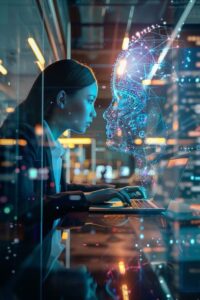AI in Intellectual Property La
Artificial Intelligence (AI) is transforming the legal landscape, particularly in the realm of Intellectual Property (IP) law. From automating contract analysis to reshaping patent and copyright frameworks, AI’s influence is profound and multifaceted. This article delves into the current applications, benefits, challenges, and future implications of AI in IP law.
AI Applications in Intellectual Property Law
1. Contract Analysis and Automation
AI-powered tools are revolutionizing contract analysis by automating the review process, identifying key clauses, and flagging potential risks. Platforms like Ironclad’s AI achieve accuracy rates of 90-95% in document review, significantly reducing human error and review time by up to 80% .Ironclad
2. Trademark Registration and Monitoring

AI streamlines trademark registration by assisting in the search for existing trademarks, ensuring uniqueness, and monitoring for potential infringements. Tools like Trademark Engine’s “Trademark Bot” and LegalZoom’s “Logo Maker” exemplify how AI facilitates efficient trademark processes .Chandrawat Partners+2Dandy Law+2American Bar Association+2
3. Enforcement of IP Rights
AI enhances the enforcement of IP rights by monitoring digital platforms for unauthorized use of copyrighted materials. Technologies like Google’s “Content ID” and Facebook’s “Rights Manager” utilize AI to detect and manage IP infringements effectively .IIPLA+1American Bar Association+1Chandrawat Partners
Benefits of AI Integration in IP Law
- Efficiency and Time-Saving: AI accelerates legal processes, allowing for quicker contract reviews and trademark registrations.
- Cost Reduction: Automation reduces the need for extensive manual labor, leading to significant cost savings for legal firms and clients.
- Enhanced Accuracy: AI minimizes human errors, ensuring more precise legal documentation and analysis.
Challenges and Ethical Considerations
1. Authorship and Ownership Issues
Determining the authorship of AI-generated works poses significant legal challenges. Current U.S. copyright law does not recognize AI as an author, leading to debates on the ownership of AI-created content .Reuters+3Dentons+3American Bar Association+3American Bar Association
2. Bias in AI Algorithms
AI systems can inadvertently perpetuate biases present in their training data, leading to unfair outcomes in IP law enforcement and decisions .PowerPatent
3. Data Privacy and Security
The use of AI involves processing vast amounts of sensitive data, raising concerns about data privacy and the potential for breaches .PowerPatent
The Future of AI in Intellectual Property Law
The integration of AI in IP law is expected to deepen, with advancements in AI technologies leading to more sophisticated legal tools. However, this progression necessitates the development of new legal frameworks to address emerging challenges, such as AI authorship and data privacy.PowerPatent
Conclusion
AI’s integration into IP law offers numerous benefits, including increased efficiency, cost savings, and enhanced accuracy. However, it also presents challenges that require careful consideration and the development of appropriate legal frameworks. As AI continues to evolve, its role in IP law will undoubtedly expand, necessitating ongoing dialogue among legal professionals, technologists, and policymakers.PowerPatentPowerPatent+2Dentons+2IIPLA+2
For further insights into AI’s role in digital transformation, you may refer to our previous article: What Are the Techniques of AI and How They’re Powering Digital Transformation.




